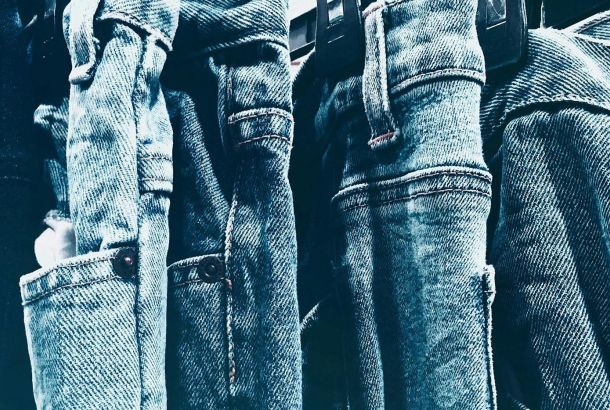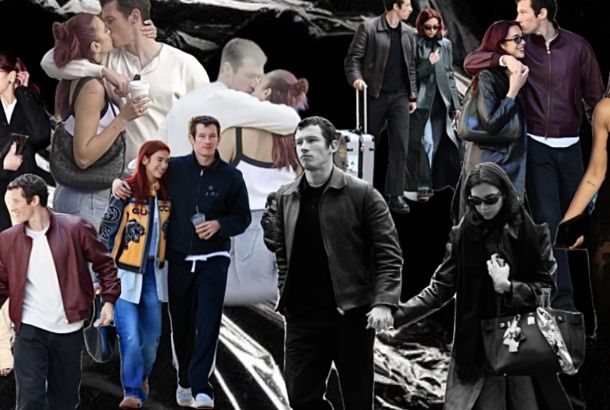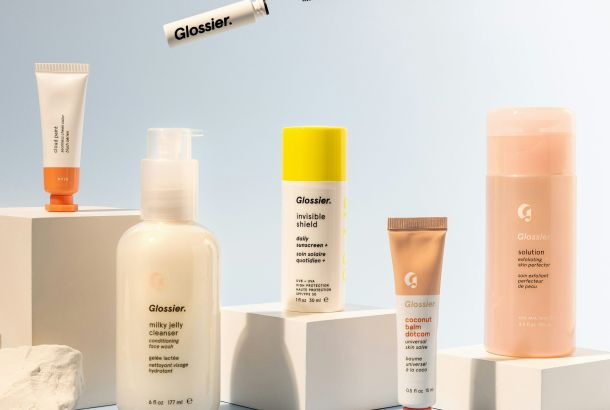Horticultured: Manchester Fashion Movement brings great clothes to the great outdoors

Last week, as part of its Bridgewater Lates series, Salford’s RHS Bridgewater garden hosted its first fashion show, Horticultured. The show was a collaborative endeavour, by Salford University, RHS, and Manchester Fashion Movement. Horticultured was a timely exploration of the intimate and complex relationship between fashion, consumption, and the natural world.
Pioneered by Alison Carlin and Camilla Cheung, Manchester Fashion Movement is a Community Interest Company, based on a philosophy of engaging and empowering communities in Greater Manchester to adopt more conscious lifestyles. The movement uses its events, brand agency, and educational programs to advocate for innovative approaches and a more sustainable fashion industry.
Manchester and its hinterland have long been intertwined with the global cotton trade and the textile industry.
The show’s location was certainly thought-provoking. RHS Bridgewater opened in 2021, after a five-year project to transform the former grounds of Worsley Hall, demolished in the 1940s, into a landscaped garden that welcomes visitors all year round. The garden takes its name from the Bridgewater Canal, which runs adjacent to it, and was crucial in facilitating the rapid industrialisation of Manchester and the surrounding areas. The extension of the Bridgewater Canal to Liverpool in 1776 allowed for the easy transportation of raw cotton, between the two cities. The subsequent arrival of the Liverpool-Manchester railway in 1830 only intensified this.
Manchester’s wet and humid climate provided the perfect setting for processing cotton, while the prevalence of steep streams in nearby Lancashire could be utilised for washing and bleaching the cotton. Cotton mills became a dominating feature of the North West’s landscape. In its industrial boom, Manchester was using 1/3 of the world’s cotton production, around 80% of which was picked by enslaved people on plantations.

Manchester has followed something of a trend cycle of its own. Despite a significant decline in industry after the Second World War, which saw many cotton mills abandoned or repurposed, the city has once again become a centre of mass textile production. Manchester and Salford are now home to companies such as Missguided, PLT, and Boohoo, to name a few, brands which are notorious for unethical and unsustainable practices.
While the industry still relies on the exploitation of people and resources, it was promising to see a spotlight on some of the Manchester creatives who are fighting against the relentless cycle of production and consumption.
Cast by Cube Casting, the show saw models wearing the work of Manchester-based brands, all of whom are committed to embedding better fashion habits in their practice. The show featured new designs, as well as looks styled by Manchester-based vintage brands.
The sense of place and ethos of the catwalk was ever present, models walked with sprigs of flowers in their hands, and the circular direction of the runway was a nice nod to the kind of fashion world we’d like to see in the future.
There was undoubtedly a symmetry between the show’s setting and its message. Walking around the gardens before and after the show, it was impossible to ignore how beautifully and painstakingly curated they are. It is obvious that a great deal of care and patience has gone into the garden’s design, a powerful reminder that worthwhile things take time, a fact that our faster-than-fast industry has lost sight of. As the industry continues to threaten and deplete natural resources, seeing the show against the backdrop of a flourishing green landscape gave a feeling of hopefulness, that nature and fashion can exist harmoniously.

We know by now that responsible production needn’t limit creativity when it comes to design. Horticultured truly showed the breadth of that creativity, showcasing everyday, wearable pieces, alongside showstopping garments. The combination of vintage pieces and new designs demonstrated the wealth of options available to anyone trying to dress more ethically.
Highlights included Manchester Threads, a multi-disciplinary creative whose clothing mixes traditionally gendered aesthetics, exploring the interplay between masculine and feminine. Horticultured featured their archive cropped bomber jacket. A fresh take on the ordinary jacket, modernised by an iridescent pink babydoll fall, and yellow sleeve trims.
Bepo’s designs were also subtle but striking. The brand is headed by husband and wife Ben and Natalia, who started Bepo to support Ben’s mental health. The couple, who started out making t-shirts and hoodies, used Horticultured as a platform to showcase their new sustainable outerwear range. Designed, made, and sourced in Cheshire, the range uses unused ex-military parachutes and deadstock fabrics to create coats and gilets. Bepo have taken this a step further, adding a beautifully constructed parachute dress, the Monika dress, to the collection. The dress’ earthy tone perfectly balanced its bold shape and accented embellishments.
At the other end of the spectrum, the most captivating looks from the show were Sebastian Seventy Four’s mesmerising dresses. The designs blended elaborate forms and textures, seemingly taking inspiration from the vast array of shapes and textures of the natural world.
There’s still a long way to go in realising a more sustainable and equitable fashion industry, but Horticultured showed the value of celebrating the strides that are already being made. Making meaningful changes and achieving a collective consciousness about the fate of fashion starts with individual reflection on our mindset and habits. The peace and tranquillity of RHS Bridgewater provided the perfect setting for some quiet introspection about the themes of the show, while the display of creativity both from the garden and the designs created a joyful atmosphere, instilling hope for the future of clothes.







